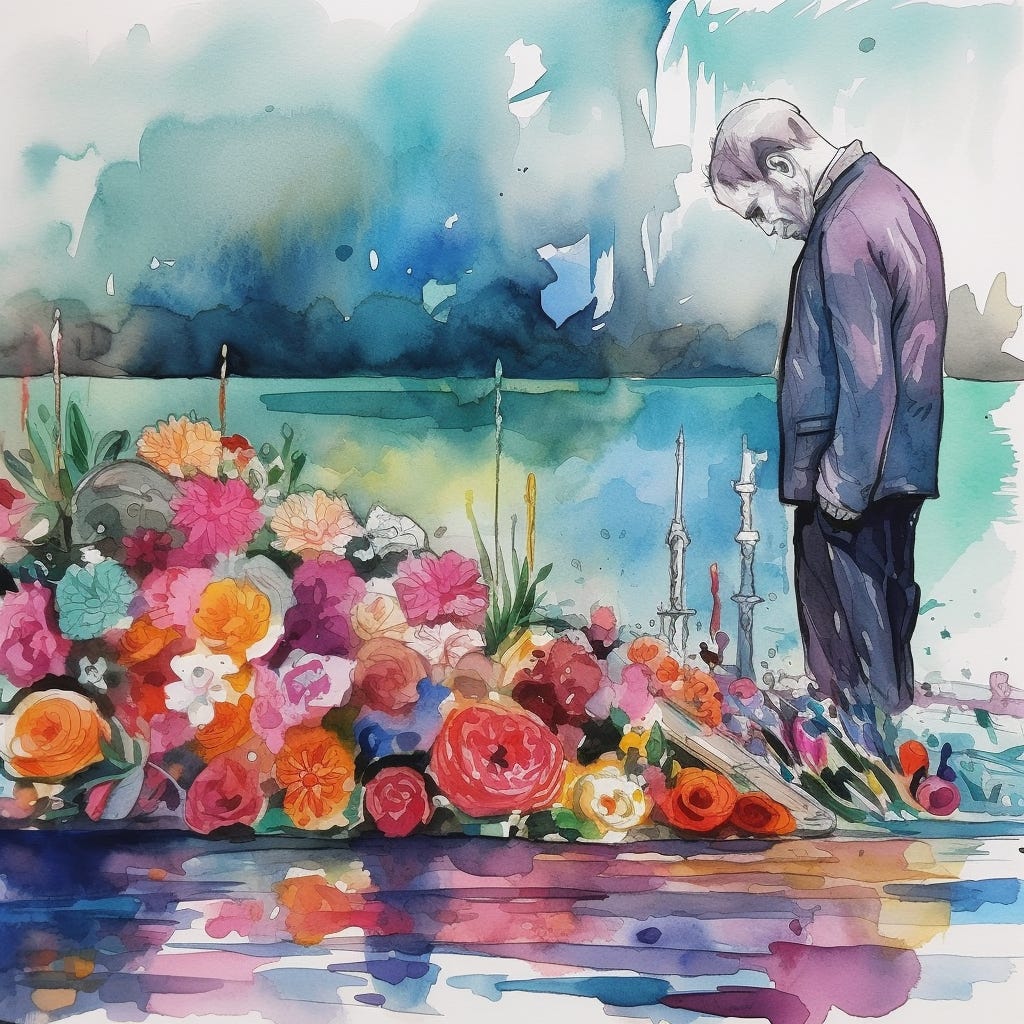Relearning The World Following Bereavement
Dr. Thomas Attig's advice for dealing with grief and loss
Grief Counseling
It wasn’t exactly an area I thought I’d find myself in but when I began counseling two of my first few clients were struggling with grief and loss.
I’ve had a few since too and it’s an area that I find myself now very much a part of.
Helping people deal with their loss is not easy, no two people will ever experience in the same way but personally it is an absolute privilege to be able to help people come to terms with their experiences and give them some tools so that they can learn to live their lives as best they can once again.
Grief is an emotional response to loss, often triggered by the death of a loved one.
It is a complex and multifaceted process that encompasses a range of emotions, thoughts, and behaviors. While grief is a natural and healthy response to loss, it can be an overwhelming and debilitating experience and sometimes lead to what’s known as Complicated Grief.
Relearing The World
Renowned grief scholar and author, Dr. Thomas Attig, has devoted his professional life to understanding and mitigating the anguish of grief and has penned three books on the subject.
His influential contributions have profoundly shaped our comprehension of mourning and bereavement.
Most notably of all, his idea of "relearning the world" following a major loss has been pivotal in transforming perceptions and coping mechanisms related to grief and loss.
Attig's influential book, "How We Grieve: Relearning the World," presents a compelling challenge to the conventional linear framework of mourning.
We need to go a little back in time here. In 1969, Elisabeth Kübler-Ross came up with the 5 stages of grief. They are:denial, anger, bargaining, depression and acceptance. The problem with these five is stage is that they’ve become so engrained in culture that we take them to be true.
Consistent research since the 1960s have shown that they are not.
The second problem is that they present the different facets of grief in a linear fashion. People do not grieve in a linear fashion.
In contrast to the notion of sequential stages, Dr. Attig advocates for a nuanced and dynamic grieving process centered on the transformation of our connection to the world following a bereavement.
A New Way Of Being
He emphasizes that grief is not about getting over someone or something, but about learning to navigate a new way of being in the world without the person or thing we have lost.
Dr. Attig's profound understanding has positively impacted people dealing with loss, guiding them through their personal journeys.
He fervently promotes empathetic and comprehensive methods for supporting individuals in grief. His work has not only transformed the landscape of grief counseling but also ignited a new perspective on finding solace and purpose amidst sorrow.
In his work, Dr. Attig outlines various fundamental concepts for relearning the world following a loss. They are:
Acknowledge and Accept Your Grief: The first step in relearning the world is to acknowledge and accept your grief.
This means allowing yourself to feel the full range of emotions that accompany loss, including sadness, anger, guilt, and fear. It is important to remember that there is no right or wrong way to grieve and that every person will grieve differently.
Be Patient with Yourself: The journey of grieving is a gradual process, not a single occurrence. It can take a long time to heal and we do not every really fully heal from a loss, we learn to bear it. It's essential to be patient with yourself and to allow yourself to drive properly at your own pace.
Seek Support: In times of grief, seeking support is paramount. It's essential not to shy away from leaning on friends, family, or professional therapists.
Sharing your feelings can help with emotional processing and alleviate the burden of suffering alone. Understanding your emotions and dealing with them often becomes easier when shared with supportive individuals.
Take Care of Yourself: Make sure you are taking care of yourself physically and emotionally. This means eating healthy, getting enough sleep, and exercising regularly.
It is also important to find healthy ways to cope with stress, such as yoga, meditation, or spending time in nature.
Find Meaning and Purpose: Grief can act as a transformative force, propelling people toward personal growth and positive changes. As they navigate through the process of relearning, they may discover fresh perspectives on life, ultimately uncovering newfound significance and direction.
Embarking on a path of relearning the world post-loss poses substantial challenges, yet it ultimately yields rewarding outcomes as we learn to live again in the world. The memories of our loved ones stay, we do not leave them behind, this is a common fear of people experiencing complicated grief but instead we best honor our lost loved one by living a life they would have wanted for us.
Be following the advice of Dr. Attig in his books and talks, you can learn to cope with your grief and find a way to live a meaningful life after experiencing a loss.
Hi, I’m Paddy. Thanks for reading my article. I’m a counselor, coach and meditation teacher.
If you’d like to contact me regarding a counseling session or about writing, you can contact me here. My different social media channels are here.




